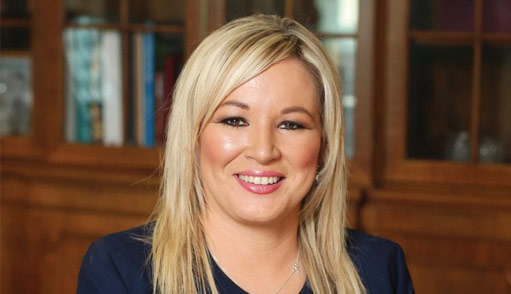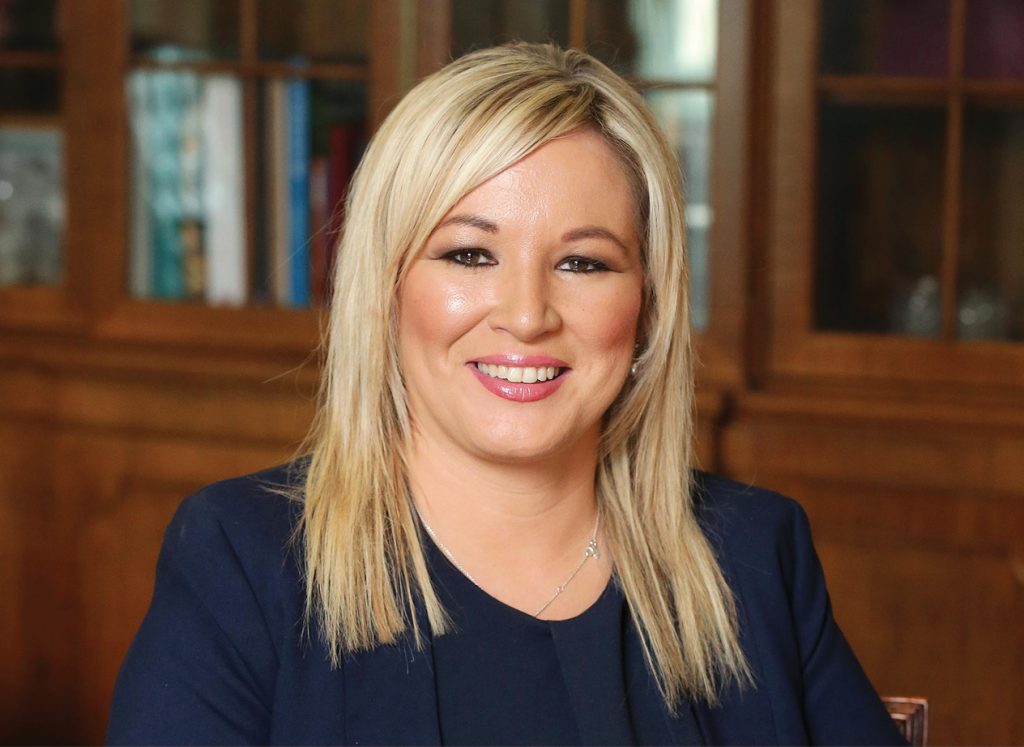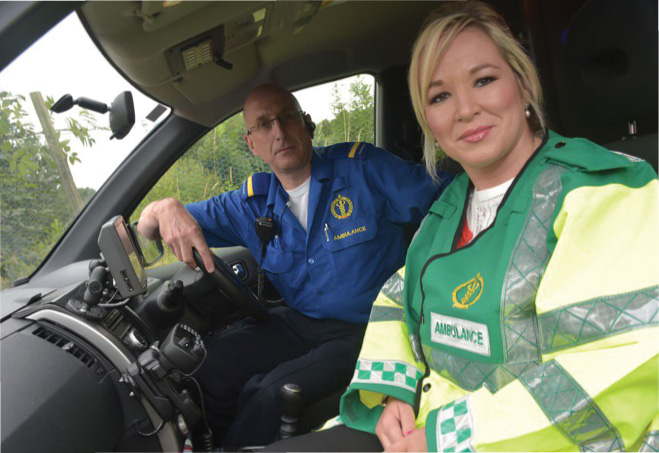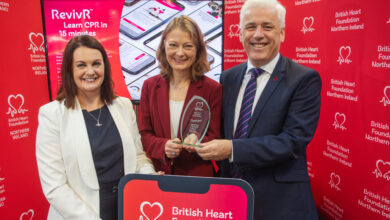Delivering change


Health Minister Michelle O’Neill writes for agendaNi on her long-term vision to transform health and social care following the publication of the long-awaited Bengoa report.
I am very proud of our health and social care (HSC) service and of the dedication of all of those working in it. I have visited a number of HSC settings, spoken to many staff and seen firsthand their commitment and how they go the extra mile to look after patients, help colleagues and improve the services we receive.
It is a privilege to work with people in the HSC at all levels to deliver the changes needed to improve the health and wellbeing outcomes for our population.
In October, I set out an ambitious long-term vision to transform the HSC. This is not a quick fix but will only be achieved through a sustained and incremental process of change, working in partnership with those who use and provide services.
The evidence for transformation is well documented, most recently in the report of the expert panel, led by Professor Rafael Bengoa. Put simply, the current model was designed to deliver services for the population of the mid-20th century. Today, people are living longer, which is a good thing but they often have long-term health conditions, and we are having fewer children. Our system must meet the needs of today’s population and that of the future.
The differences in outcomes between the most and least deprived areas are stark and completely unacceptable. There are a range of socio-economic factors that influence indicators of health inequality such as birth weight, life expectancy, alcohol related deaths, suicide deaths and self-harm. We need to work across all Government departments, local councils, and with local communities if we want to ‘turn the curve’ and deliver better outcomes for everyone. Health has a major role to play but it cannot do it alone.
We have a unique opportunity to make the changes needed. The political summit hosted by Professor Bengoa in February 2016 shows there is political buy-in to the need for change and the principles which underpin it and there is strong commitment to transformation shown by the Executive’s endorsement of Delivering Together.
The advent of the new outcomes based format of Programme for Government shows the benefits of cross-government collaboration and is a model for how we will achieve lasting and meaningful change.
I am committed to realising the opportunities in terms of how we work with colleagues across Ireland. The HSC fabric of both parts of the island face the same challenges and together we can seek innovative solutions to address these challenges and improve services.
There are many good examples of this, the recent opening of the North West Cancer Centre at Altnagelvin is one such example. I have met with my counterpart Simon Harris TD on a number of occasions, and we are developing a programme of work with the Department of Health in the south. I have consistently said that mental health is one of my key priorities, and in championing a parity of esteem for mental health, I want look at how we can address needs that exist across the island, such as perinatal support for mothers.
I want people to be given the information, education and support to enable them to keep well in the first place. When care is needed, it should be safe and of high quality. Those who use services should be treated with dignity, respect and compassion. I want to see a HSC system which is efficient and sustainable, where best practice is the norm and where investment is made in areas that will positively impact service users.
This requires whole system change across primary, secondary and community care and a radical change to the way we access services. Primary care is the bedrock of our HSC system and we will support and enhance primary care teams so that they have the capacity, tools and skills to treat and co-ordinate the majority of care, helping people to stay well.
We will develop elective care centres to carry out less complex planned treatments. This may mean that patients travel further for treatment but strong evidence shows that through making better use of resources, we can reduce waiting times and provide a much better experience for patients and for staff. With more care being delivered through primary care and elective centres, the role of our acute hospitals will fundamentally change to focus on patients with very acute and complex needs.
Already we are building the momentum behind that vision. In Delivering Together, I set out the actions I will take in the first 12 months and these are on track. I will return to the Assembly in March to provide an update on progress.

“I want to see a HSC system which is efficient and sustainable, where best practice is the norm and where investment is made in areas that will positively impact service users.”
I recently published two strategies to modernise and enhance paediatric healthcare over the next 10 years and proposals to improve pathology services are currently out for consultation. I also recently launched a new Diabetes Framework and Network, which will deliver real change for the 88,000 people living with diabetes, a vital element in turning the vision of Delivering Together into reality.
In the weeks after Delivering Together was launched, I published the proposed criteria to be used to assess the sustainability of the current models of care and inform future decisions about changing health services. This consultation is ongoing with meetings across the north, and I encourage everyone to have their say, as I will give those views full consideration in making decisions about whether to adopt the criteria.
There has also been considerable focus on elective care waiting lists. I am firmly of the view that the current waiting lists are unacceptably long and have said so on many occasions. However, unless we tackle the root causes this will remain the case. This is having an increasingly negative impact on the quality and experience of care. The long term solution is the transformation of our HSC system.
It is only in transforming the HSC system, and by implementing new models of care, that we will alleviate the pressures on our HSC services, sustain improvements in waiting times and deliver better outcomes for patients.
I pay tribute to staff who, notwithstanding the structural issues, continue to work incredibly hard delivering on average 9,000 outpatient appointments, 2,600 inpatient/day case procedures and 31,000 diagnostic tests every week.
We are ready for change – staff are crying out for it, political support exists for it and the public demand it. I have been pleased with the reaction to my vision and the expert panel report which underpinned it. The time to act is now. If we are serious about improving the health of our population, then we must change the way we design and deliver services.
I will provide the political leadership needed to drive that change.





